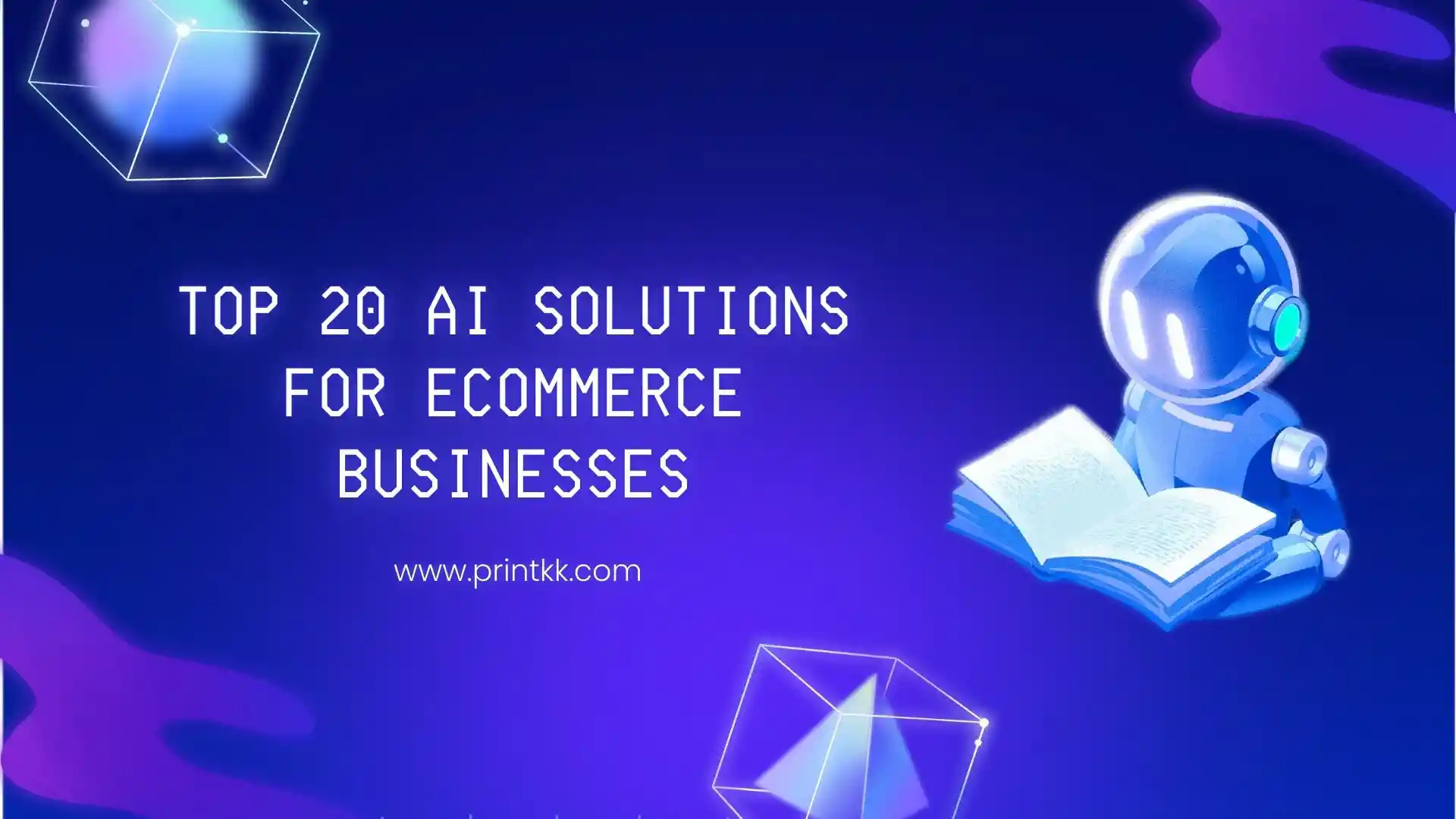
ECommerce competition is fiercer than ever, and businesses are constantly seeking innovative ways to enhance user experience, streamline operations, and boost sales.
Artificial intelligence has emerged as a key driver of this transformation, with AI solutions for eCommerce helping merchants tackle everything from personalized recommendations to smart inventory management.
In this article, we'll explore the top 20 AI solutions of 2025 that can give eCommerce businesses a competitive edge in the new wave of digital innovation.
Key Benefits of AI Solutions in Ecommerce
AI solutions can change the way you run your eCommerce business by making many processes faster and smarter.
You can use AI to understand your customers better, recommend products they are more likely to buy, and even predict trends before they happen.
This means you can tailor your marketing and inventory in ways that save time and reduce waste.
AI also improves customer service. Chatbots and virtual assistants can answer questions instantly, helping your customers get what they need without waiting.
This creates a smoother shopping experience and can increase loyalty.
The adoption of AI tools is growing quickly. By 2024, there were about 281 million users of AI tools worldwide. This shows that businesses around the world are starting to see real value in these technologies.
AI opens opportunities for smarter decision-making. With AI analyzing sales, traffic, and customer behavior, you can make data-driven choices that improve your revenue.
The AI technology market is huge, expected to surpass $800 billion by 2030, which means more tools and innovations will be available to help your business stay competitive.
Top 20 AI Solutions for eCommerce Businesses
PrintKK AI Image

PrintKK AI Image helps you create high-quality product images quickly. You don't need a photography studio or expensive equipment.
It's perfect if you want your product photos to look professional and consistent across your store. You can generate multiple variations without spending hours manually editing.
Key features:
- Adjust product images from text descriptions
- Easily extract design drawings from images
- Batch processing for multiple products
- Eliminate potential copyright risks
Best for: Stores that need consistent, polished product visuals without hiring a photographer.
Copy.ai
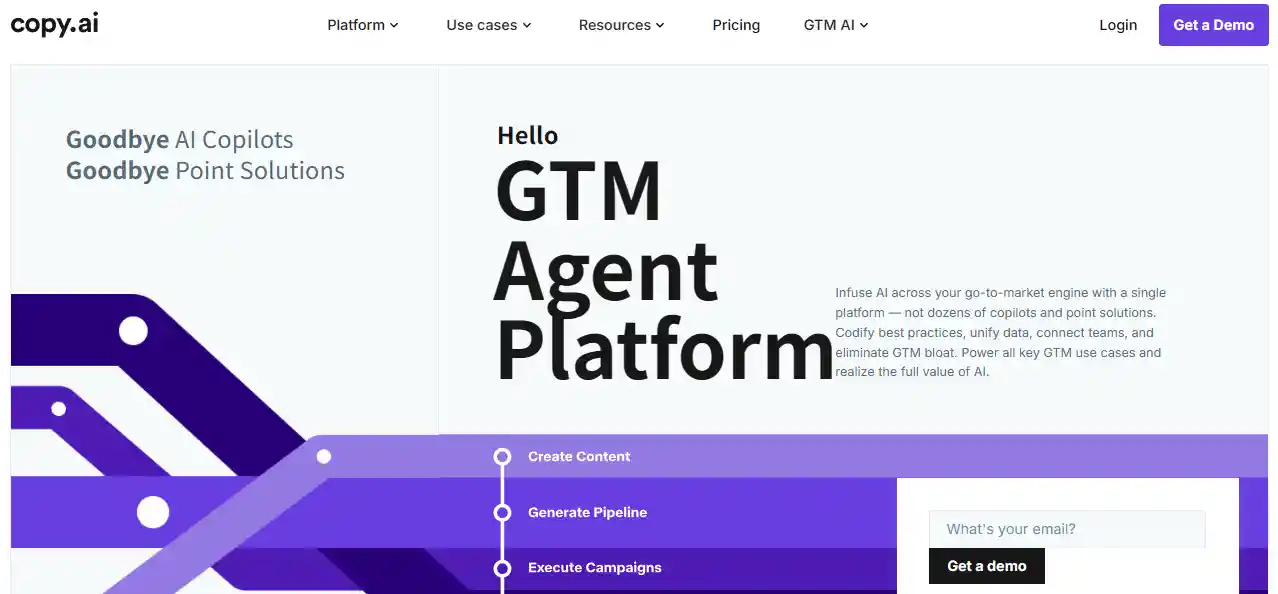
Copy.ai helps you write product descriptions, emails, and ads in minutes. It uses AI to understand your tone and target audience, so your content feels personal and clear.
You don't need to stare at a blank page or overthink every sentence.
Key features:
- Product description generator
- Email and ad copy creation
- Tone and style customization
- Multiple language support
Best for: Anyone who wants fast, consistent marketing copy with minimal effort.
Surfer AI

Surfer AI is a content assistant that helps you optimize your web pages for search engines.
It analyzes your competitors and suggests what to include, so your content ranks higher. You can write with confidence that your SEO is backed by data.
Key features:
- SEO-driven content suggestions
- Competitor analysis
- Keyword optimization
- Real-time editing guidance
Best for: Ecommerce teams that want their product pages and blogs to appear higher on Google.
MarketMuse

MarketMuse helps you plan and improve content by identifying gaps in your website's topics.
It guides you to cover subjects your competitors miss, which can increase traffic and conversions. It's like having an editor who knows what search engines reward.
Key features:
- Content gap analysis
- Topic and keyword suggestions
- AI-powered content scoring
- Planning for long-term content strategy
Best for: Businesses focused on building authority and attracting more organic traffic.
Intercom
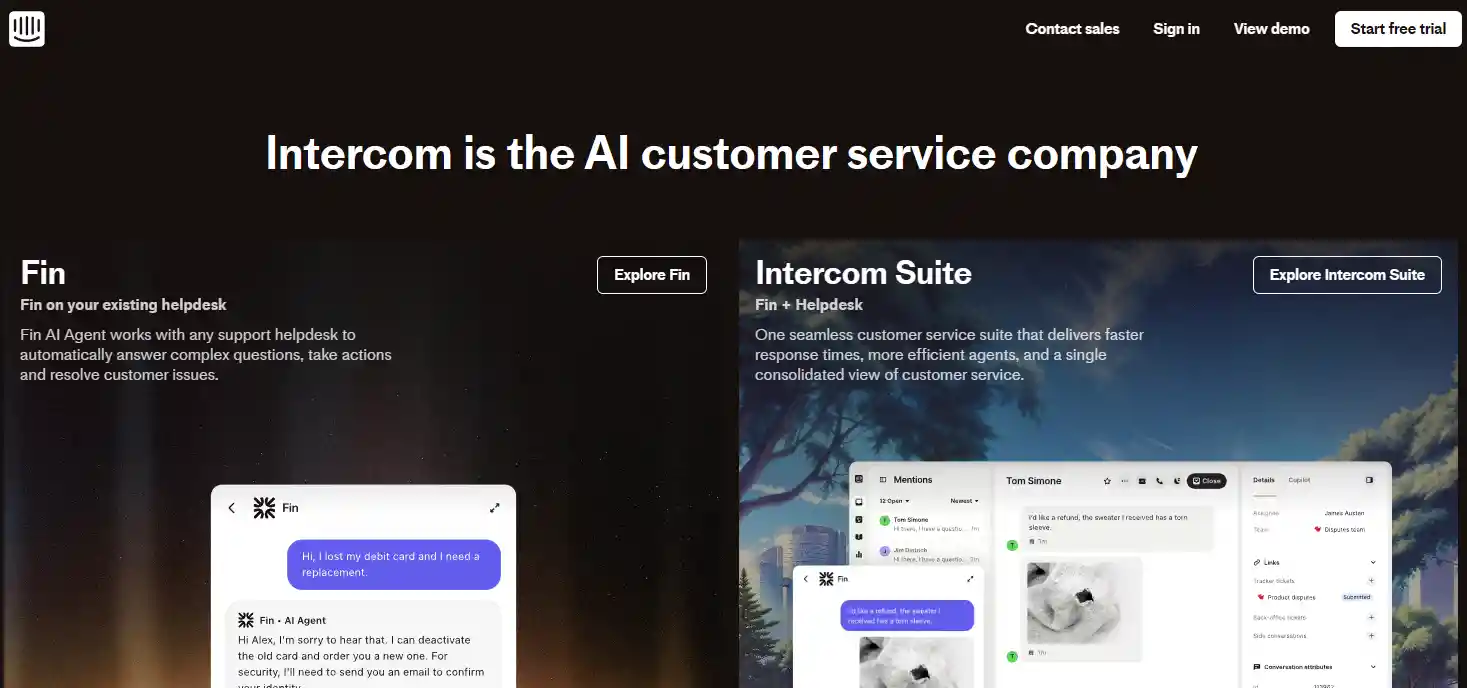
Intercom makes customer communication easier. You can respond to questions automatically or personally, depending on the situation.
It helps you manage chats, emails, and customer support from one platform, giving you a clear picture of what your customers need.
Key features:
- AI chatbots for instant support
- Customer segmentation and tracking
- Multi-channel messaging
- Automation of repetitive tasks
Best for: eCommerce teams that want faster, organized, and smarter customer support.
Zendesk

Zendesk provides smart support solutions for ecommerce businesses.
Its AI helps sort tickets, suggest answers, and manage customer issues faster. Your team can focus on tricky problems while AI handles routine questions.
Key features:
- AI ticket triage
- Suggested responses
- Multichannel support
- Reporting and analytics
Best for: Companies that want to improve support speed and customer satisfaction.
Prisync
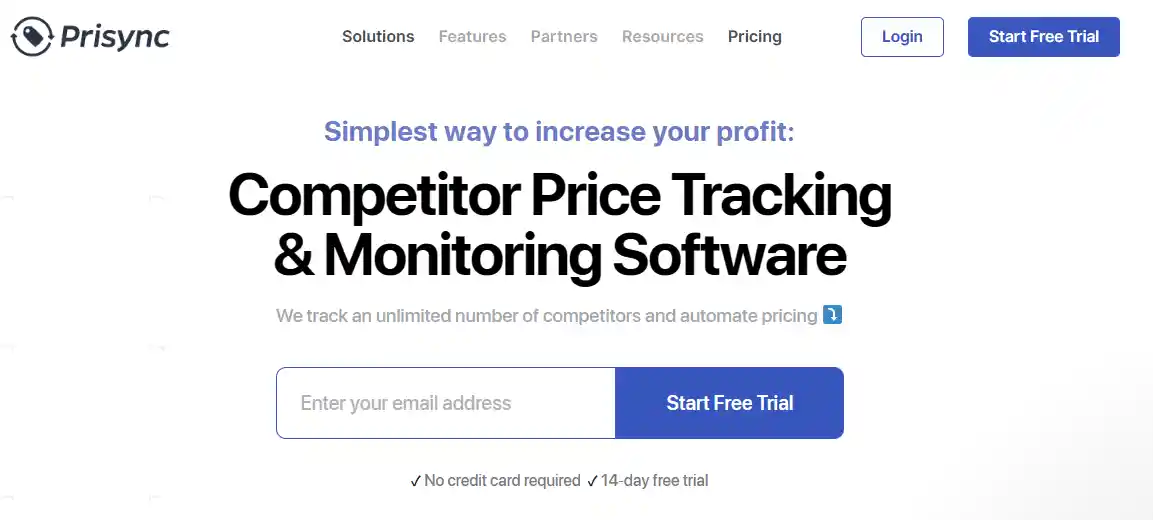
Prisync gives you real-time competitor price tracking so you can adjust your pricing strategy quickly.
It monitors market changes and alerts you when action is needed. This helps you stay competitive without constantly checking manually.
Key features:
- Price monitoring and alerts
- Competitor analysis dashboards
- Dynamic pricing suggestions
- Market trend tracking
Best for: Ecommerce businesses that need to react fast to competitors' pricing.
Blue Yonder
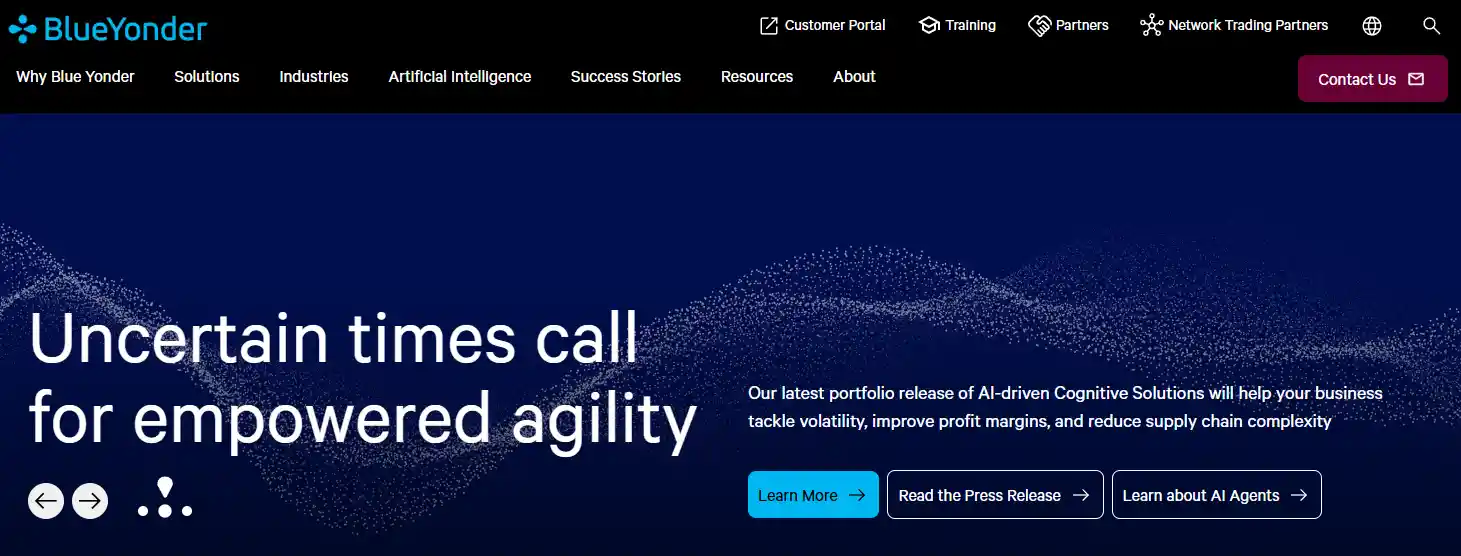
Blue Yonder focuses on inventory and demand forecasting. It predicts what products you'll need and when, reducing overstock or stockouts.
Using AI to forecast demand can save money and keep customers satisfied with product availability.
Key features:
- AI-driven demand forecasting
- Inventory optimization
- Supply chain insights
- Predictive analytics
Best for: Stores that want to manage stock more efficiently and reduce losses.
Bloomreach

Bloomreach helps you personalize the shopping experience.
It tailors product recommendations, search results, and content to each visitor. This can increase conversions and make customers feel understood.
Key features:
- Personalized product recommendations
- AI-powered site search
- Content and merchandising personalization
- Analytics to track engagement
Best for: Stores looking to make shopping feel personal for each customer.
ChatGPT
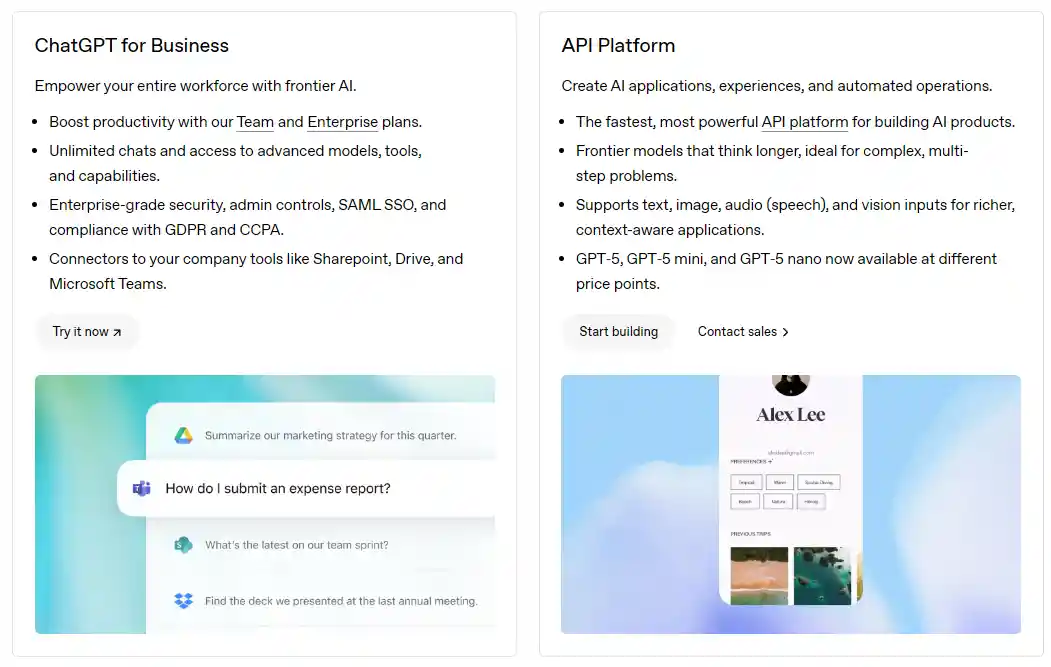
ChatGPT helps with a wide range of eCommerce tasks. You can generate product descriptions, answer customer questions, or brainstorm marketing ideas.
It adapts to your input and produces responses quickly, making daily operations smoother.
Key features:
- AI content generation
- Customer interaction assistance
- Quick brainstorming for campaigns
- Flexible integration for workflows
Best for: Anyone who needs an AI assistant for writing, support, or idea generation in their store.
Rebuy

Rebuy helps you turn casual shoppers into repeat buyers by offering smart product recommendations.
It studies how customers browse and suggests products, bundles, or upgrades at the right moment. You can increase your revenue without constantly checking what works.
Key features:
- Personalized product suggestions
- Upsell and cross-sell automation
- Customer browsing insights
- Timed offers based on behavior
Best for: Businesses that want to make every visit more likely to convert into a sale.
Synthesia

Synthesia allows you to create professional videos without cameras or actors.
You can make tutorials, demos, or marketing clips in minutes. It's ideal if you want visual content but don't have a full production team.
Key features:
- AI avatars and voiceovers
- Custom video templates
- Multi-language support
- Quick video generation
Best for: Teams that need engaging video content with minimal setup.
OptiMonk

OptiMonk helps you capture more leads and prevent cart abandonment with personalized pop-ups.
It watches how visitors behave and delivers messages or offers at exactly the right moment, so you don't lose potential sales.
Key features:
- Behavior-triggered pop-ups
- Exit-intent offers
- Personalized messages
- Integration with online stores
Best for: Online stores looking to turn hesitant visitors into paying customers.
DALL-E

DALL-E lets you turn words into unique images. You can generate visuals for products, ads, or social posts without hiring a designer.
It interprets your text prompts to create visuals that match your brand or campaign style.
Key features:
- Text-to-image AI generation
- Customizable visual styles
- High-resolution output
- Rapid creative iterations
Best for: Businesses that need distinctive visuals without the time or cost of traditional design.
Adobe Firefly

Adobe Firefly brings AI-powered creativity into Adobe tools.
You can make images, graphics, or ads with AI suggestions, all while staying inside the programs you already know. It's a way to speed up creation without sacrificing quality.
Key features:
- AI-assisted image creation
- Style and color customization
- Integration with Creative Cloud
- Ready-to-use assets
Best for: Marketers and designers who want AI support within familiar Adobe workflows.
Salesforce Einstein
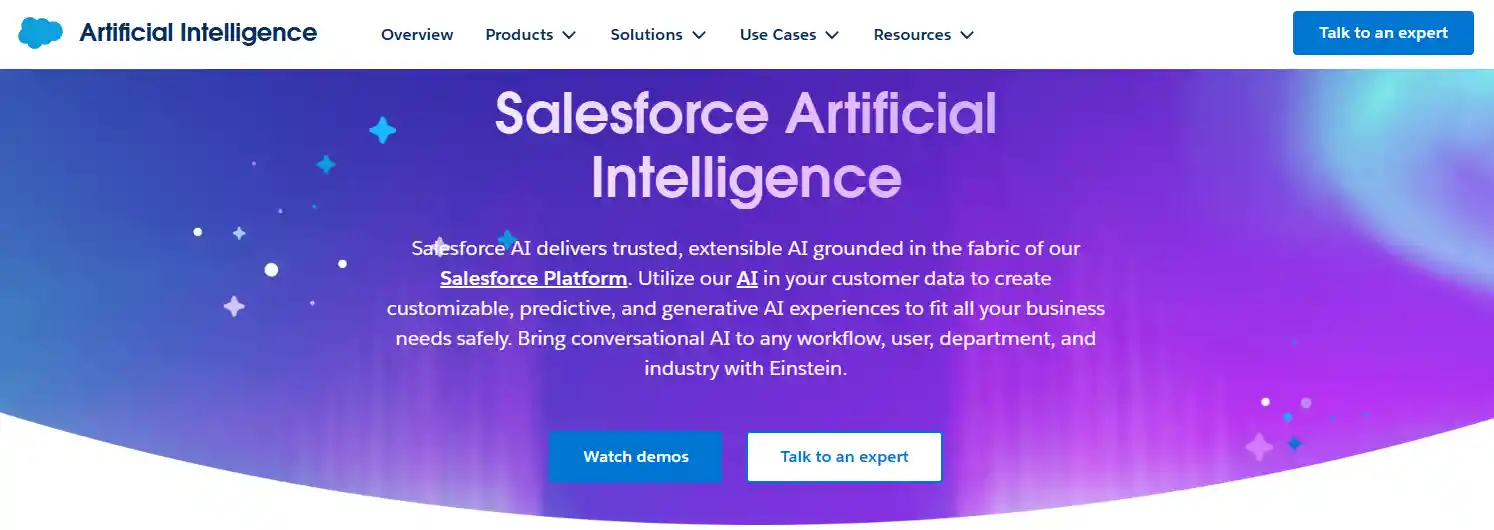
Salesforce Einstein uses AI to help you make smarter business decisions.
It predicts trends, identifies promising leads, and shows which customers are likely to buy. You can rely on data-driven insights instead of guesswork.
Key features:
- Predictive lead scoring
- Customer segmentation
- Automated insights
- Salesforce CRM integration
Best for: Teams that want AI guidance to improve sales and marketing strategies.
Canva AI

Canva AI lets you create visuals quickly without being a designer.
From social media posts to product banners, it offers layout and style suggestions that make your designs look polished. You can experiment freely while keeping things professional.
Key features:
- AI image generation
- Ready-made design templates
- Background removal tools
- Easy resizing and editing
Best for: Small teams or solo entrepreneurs who need high-quality visuals fast.
Help Scout
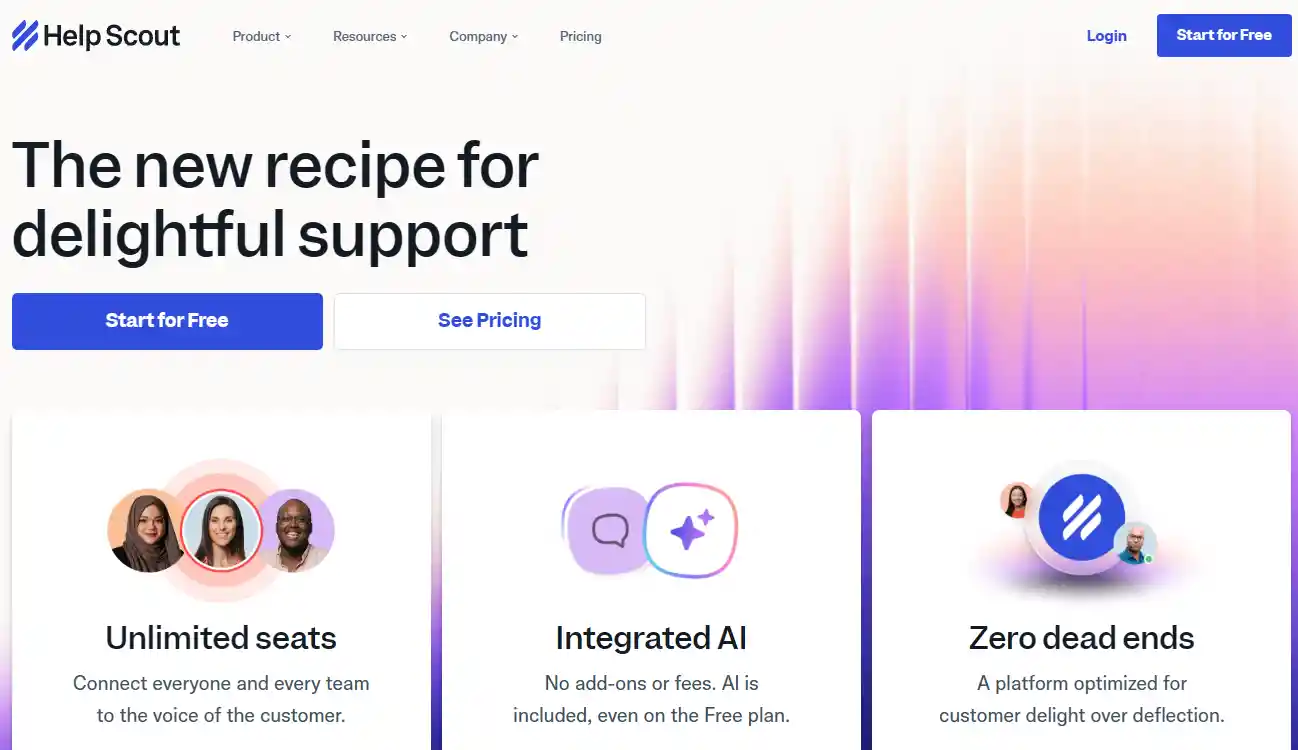
Help Scout gives you AI-assisted customer support that saves time and keeps answers consistent.
It can suggest replies, categorize tickets, and help your team focus on complex issues rather than routine questions.
Key features:
- Recommended responses
- Conversation management
- Multichannel support
- Reporting and analytics
Best for: Ecommerce teams that want faster, more reliable customer service.
MidJourney

MidJourney helps you explore creative visual ideas with AI.
You can generate original, artistic images for marketing, branding, or social media campaigns. It's useful when you want visuals that stand out and feel unique.
Key features:
- AI-powered text-to-image generation
- Style and mood customization
- High-resolution outputs
- Creative experimentation
Best for: Brands seeking highly distinctive and artistic visuals.
GrammarlyGO
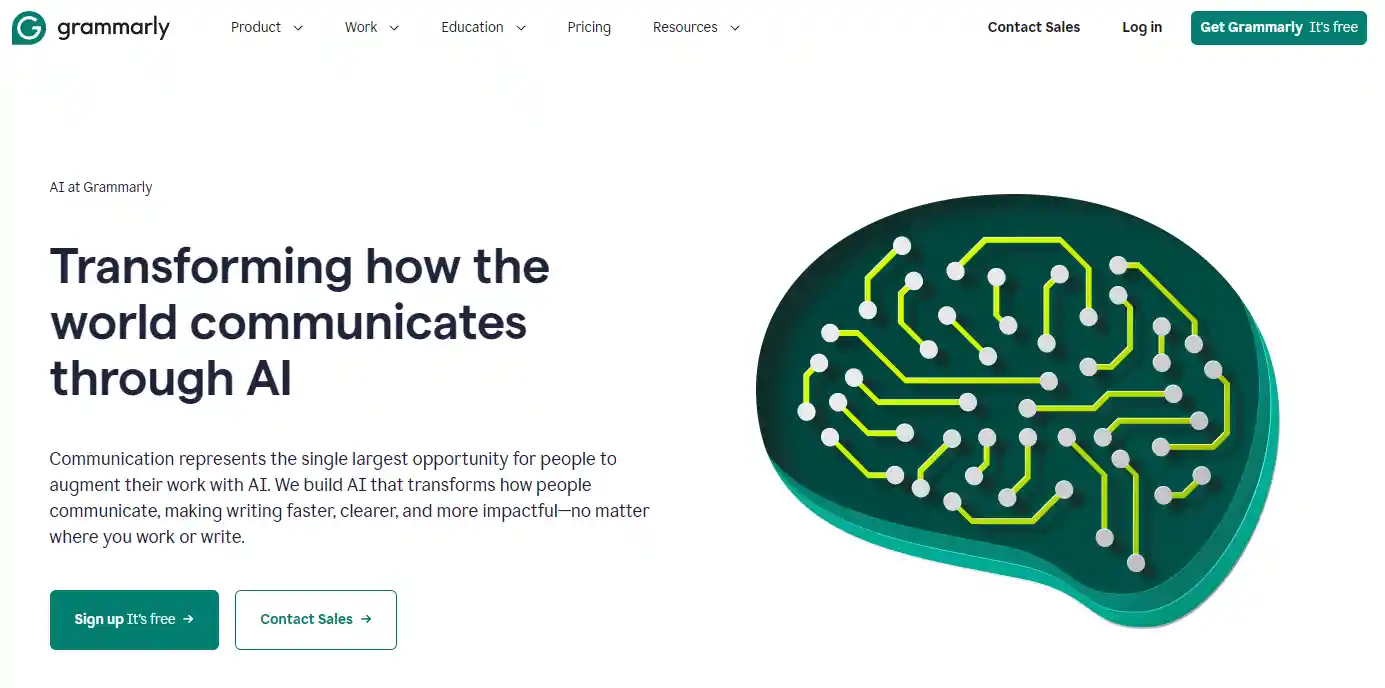
GrammarlyGO helps you write better and faster.
Whether it's product descriptions, emails, or ad copy, it checks grammar, improves style, and adjusts tone for your audience.
You can create professional content without spending extra time editing.
Key features:
- Grammar and style corrections
- Tone and clarity suggestions
- AI content recommendations
- Multilingual support
Best for: Teams or solo sellers who need polished, consistent writing quickly.
Read More:
- 36 Best AI Tools for Small Businesses to Boost Efficiency
- Top 9 AI Tools for Print on Demand: Boost Your Business
Avoiding AI Failures: Evaluation and Risk Strategies
When you introduce AI into your ecommerce business, not everything will work perfectly at first.
Many AI projects look impressive in demos but fail in real life.
Start by defining clear metrics. You need to know how you will measure success.
Look at conversion rates, customer retention, or cost savings from AI tools.
Customer satisfaction scores and error rates also give you a clear picture of performance.
Poor data can sabotage even the smartest AI. If your input is messy or biased, the model will give unreliable results. You need to check data quality regularly.
People matter too. Teams can resist AI if they don't trust it or fear it will replace them. Transparent communication and training help reduce resistance.
Set up monitoring and alerts. Watch for unusual outputs or unexpected behavior. Real-time detection can save you from bigger failures.
Prepare contingency plans. Know what to do if a model crashes or makes wrong recommendations. Manual override or backup processes can keep your operations running smoothly.
Consider organizational risks. Employee resistance or misaligned expectations can slow down adoption. Clear goals, training, and regular updates make AI integration smoother.
By combining evaluation, monitoring, and risk planning, you can avoid many common AI failures. You stay in control while letting AI help your business grow.

Keep Your eCommerce AI Safe and Compliant
When you use AI in your eCommerce business, handling user data responsibly is essential. Personalized recommendations and chatbots rely on information from your customers. Missteps can lead to lost trust and legal trouble.
Start with bias. AI can unintentionally favor some users or products over others. This can affect pricing, visibility, or recommendations.
- Diversify your datasets to reflect all customer types.
- Audit your model outputs regularly.
- Design algorithms to reduce unfairness.
Privacy is next. Customers worry about how you use their data. Only collect what you truly need. Encrypt and anonymize sensitive information, especially for chatbots or conversational AI.
Regulatory compliance cannot be ignored. GDPR, CCPA, and other rules set strict boundaries.
- Get clear user consent.
- Provide easy opt-out options.
- Keep audit logs ready for inspections.
Security is equally critical. Data breaches damage trust and business.
- Encrypt data in storage and during transmission.
- Detect vulnerabilities early.
- Prepare contingency plans for attacks or leaks.
Set principles. Establish clear AI ethics and data governance rules. Monitor your systems continuously. Update practices when needed.
Expert Tips
You've seen how AI can transform your ecommerce business. The right ai solutions for ecommerce help you improve efficiency, boost customer satisfaction, and stay competitive.
Focus on choosing tools that fit your goals. Keep evaluating their performance and managing risks. Protect user data and stay compliant.
AI is not just a tool. It's a partner that can grow with your business.
By staying proactive, you can get the most value from your AI investments. Keep learning, adjusting, and optimizing.










 Global Shipping
Global Shipping


 Made in USA
Made in USA



























